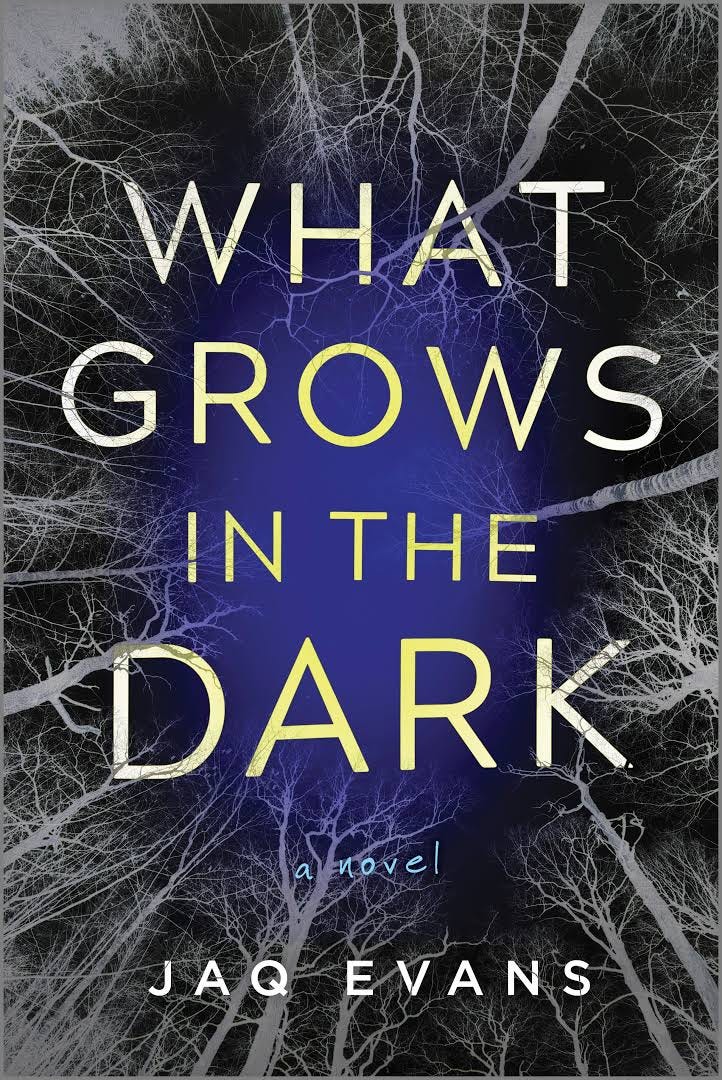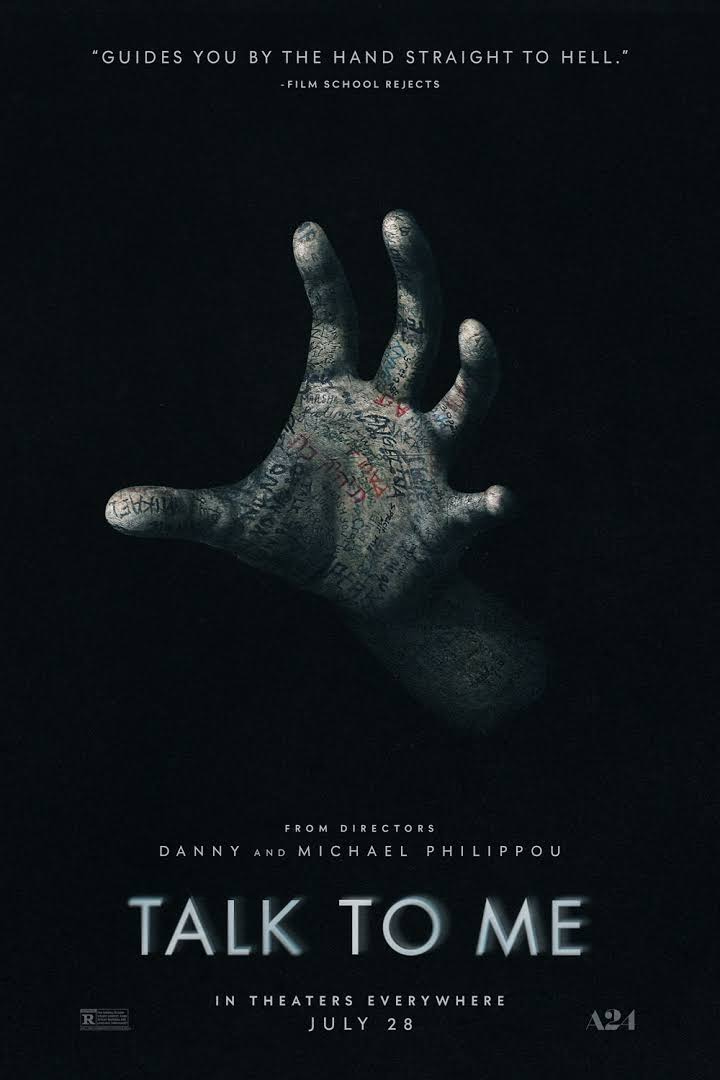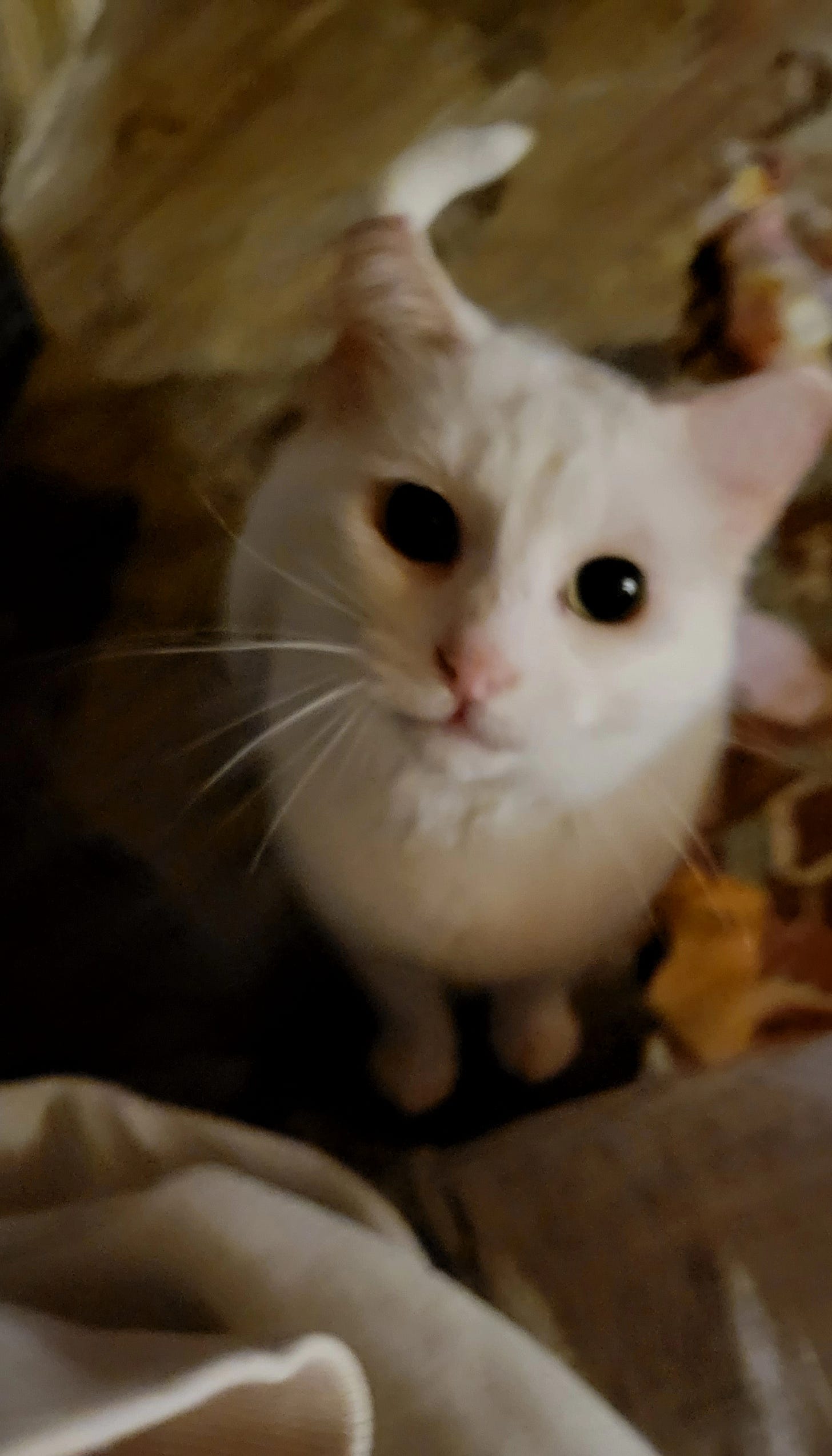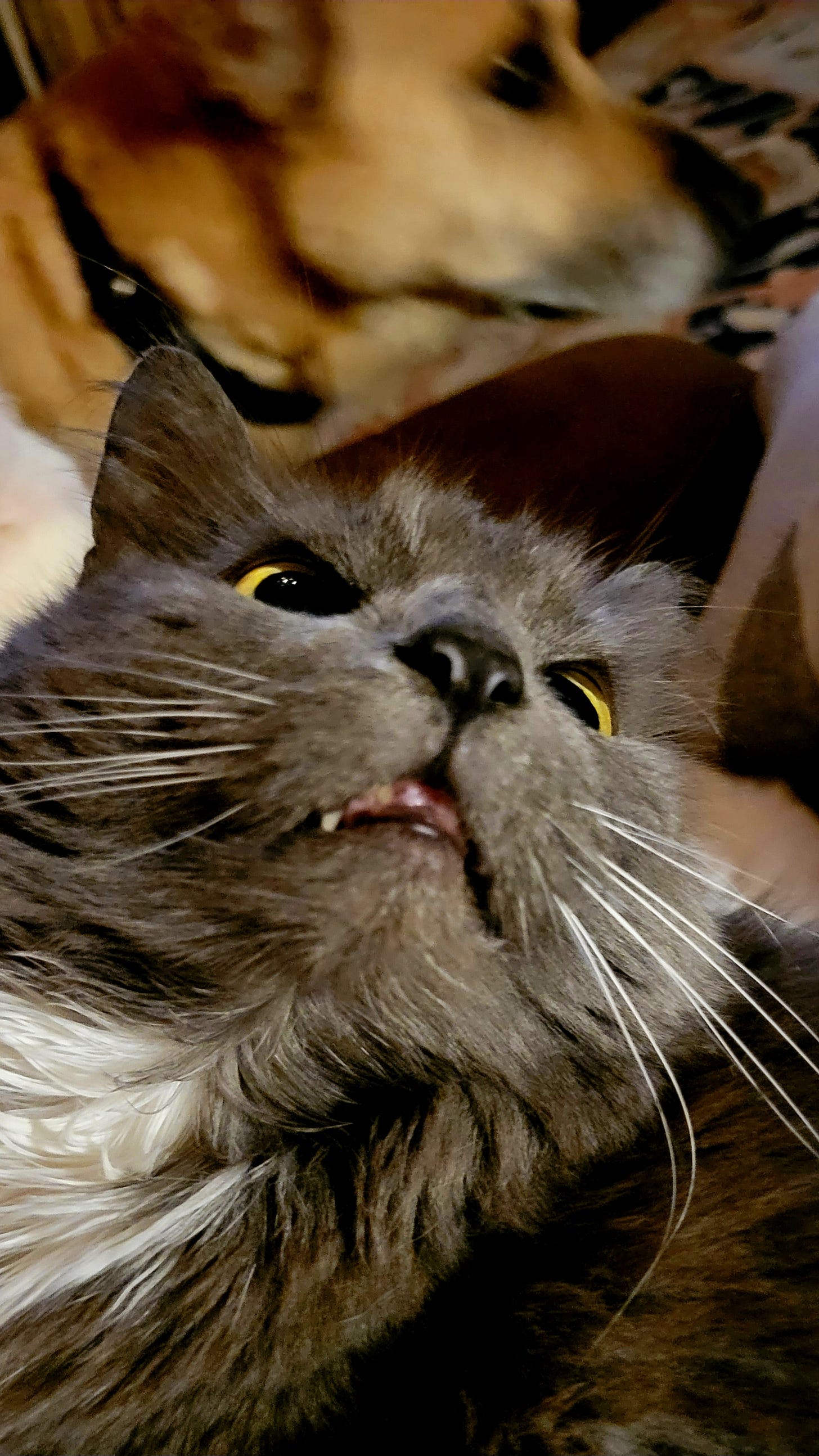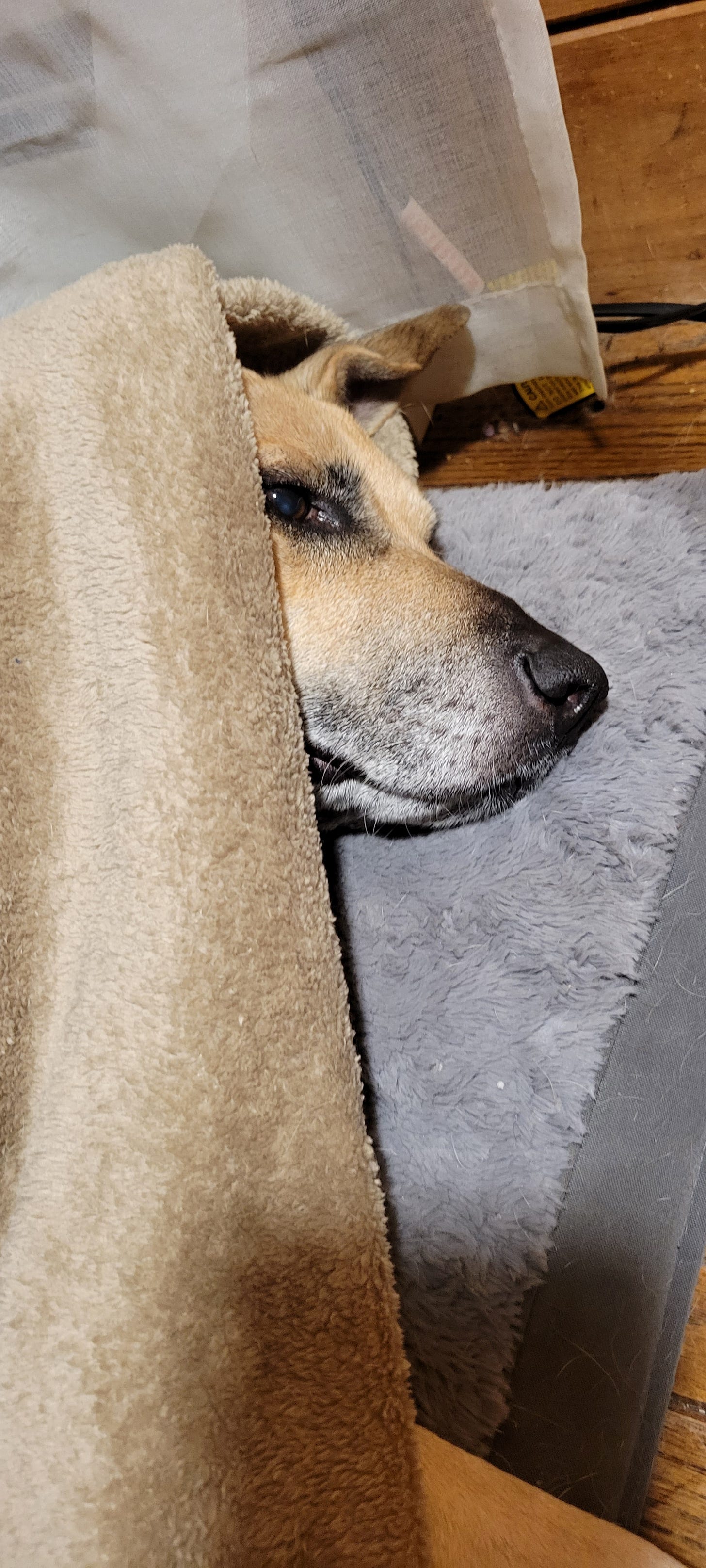The Sixth Dispatch
Welcome to the newest issue of C.J. Dotson's Dreadful Dispatch
The Writing
Hi, friends! It’s been a fun month for writing news for me. I have gotten my fully signed contract with St. Martin’s Press (which I really thought would do something for this impostor syndrome, but most of the time this all still feels faintly unreal), and I received word from my editor that my latest revisions on THE CUT were great and we’re moving on to next parts of the publishing process. Exciting! Also kind of daunting!
I should be done with the first draft of my newest novel, OVER THE RIVER, by the end of this month. Drafting on that has been going a little slower than expected but it’s coming along so well and I’m having so much fun writing it. (So much fun, in fact, that I kept putting off taking some of my writing time to put this newsletter together.)
Also, over the weekend I attended a day of horror writing workshops, Winter Haunts 2023. I love workshops like this, both for the chance to learn from other talented writers and because I find writing workshop events are a great starting point for getting a feel for future projects. In fact, I came out of yesterday’s workshop with some new ideas for things to do with the next book I plan to draft, as well as a pretty good starting point for the personalities of the two main characters of my next book after that. Fun stuff!
Book Review: 5 out of 5 stars for What Grows in the Dark by Jaq Evans
What Grows in the Dark by Jaq Evans is a horror novel coming out March 5th, 2024. As with all of my reviews, I mark spoilers with italics to make them easy to skip if you want. I got an ARC from the publisher through NetGalley in exchange for my honest review of the book.
Which, in short, is that it was amazing.
The book opens on youtuber duo Brigit, an emotionally unavailable but deeply charismatic scam psychic pretending to be guided by the ghost of her long-dead sister Emma, and Ian, a mostly-optimistic cameraman who came up with the idea for their youtube series. Together they travel the country (a transient lifestyle that particularly suits Brigit’s restlessness and emotional distance) pretending to help people who believe they are afflicted by ghosts or other problems for which one might decide they need a psychic. For a fee, of course.
Between gigs, Brigit gets a call from the small town she grew up in, the town she lived in when her older sister died. Alicia, an ex-girlfriend of Brigit’s sister, grown now and still living in town, wants Brigit’s psychic help solving the disappearance of two teens, and she’s prepared to pay Brigit and her cameraman much more than their standard rate if they’ll come, because the disappearances seem to be linked to Emma’s death all those years ago.
Because they don’t have anything else lined up, because Alicia is offering them a lot of money to make a simple trip, because their youtube channel is not exactly thriving and the pair’s dreams of network syndication have so far failed to come to fruition, and because Ian pushes for it a little as a chance to learn more about his perpetually-distant friend, Brigit agrees.
They arrive in Ellis Creek and Brigit finds herself in the center of a web of her own unhappy memories, deceptions such as Alicia revealing that she is actually the lead detective on the hunt for the missing kids, small town drama, and deeply unsettling experiences that Brigit can’t quite dismiss as mere hallucinations brought on by poor sleep and high stress. As Ian and Brigit investigate, meeting with more locals from Brigit’s past and making what connections they can, things in Ellis Creek only grow stranger, and more dangerous.
Aside from being an exciting, unnerving, and well-plotted book, aside from having characters who felt tangible and complex and real, I loved the writing in this book on a line level. Jaq Evans writes with a visceral clarity that several times had me copying out lines to go “Ooooh” about at my leisure.
Brigit was presented from the start as a complicated character, difficult to get close to, difficult to like. She closes herself off from people emotionally, pushes away at Ian’s attempts to deepen their friendship despite knowing him for some time and literally traveling the country with him, and makes her money by scamming people. Brigit also has an almost uncanny ability to read people, and a keen sense of and regret for her own shortcomings that does not feel performative but genuine. In the first chapter we are introduced to Brigit unequivocally faking a séance, but we also see her doing her best to offer any thread of legitimate help or support she thinks her young client needs. The whole comes together to create a complex woman who has experienced trauma at a young age and has reacted to it by closing herself off from the world—but who also does, on some level, want to help people. She’s not exactly likeable, but she’s understandable, and she’s easy to root for, too.
The POV switches between Brigit and Ian. At first I found Ian a slightly less compelling character than Brigit, but the more I read of him the more his own conflictions and complexities became clear. He’s a character of contradictions, first in the way he differs from Brigit; he wants to be close to Brigit, he wants to be likeable, he doesn’t have the almost uncanny ability to read people that Brigit has, he’s more optimistic. Both Brigit and Ian see themselves as more fundamentally flawed than they are—but it seems to me that Brigit feels more self-recrimination about this whereas Ian gives me the impression of having a little more distance from it, in part because the parts of Ian’s self that he doesn’t like all come back to his dad, a character who is never actively present in the book but who it is revealed first through implication and later through more concrete references to have been an abusive parent. And the narration sets up certain small expectations about Ian that it then turns around on the reader, for example when the two filmmakers have to get checked out at the hospital, Ian has no worry at all about the cost and considers paying for Brigit’s bills as well, only rejecting the idea because he knows she would not want that. From this, for a brief time, the reader might think that Ian comes from a place of privilege. It’s only over the course of the book that the narration reveals that Ian only has any money because of the death of his mother, and the cause of his mother’s death is one of the very few points in the book that I was not very clear on (and also, in the grand scheme of the book, not very vital to know, so in the end it didn’t bother me that I was not very clear on that piece of Ian’s history).
I loved the introduction to Ellis Creek coming from an Ian chapter. As a reader who has never been to this town in this world that Evans created, entering it the first time from the point of view of the character who did not grow up there, who was seeing it as an outsider, made that moment feel so vivid and real.
The scares in the book were uncanny and unsettling, from experiences that Brigit did not know whether to dismiss as hallucinations or fear as malicious visitations, to the fear of the unknown when the characters first delve into the woods at the heart of this story, to abrupt moments of shocking violence, and any time the entity in the woods interacted directly with the characters—whether from within in one of the most absorbing possession scenes I’ve ever read or face to face in the deep dark woods.
The following paragraph, in italics, is going to be spoiler-heavy. Skip to the next part if you wish to avoid spoilers.
I loved the possession scene in this book. Brigit’s frightening visions before and after going into the Dell are uncanny and eerie and unsettling, just top-tier spooky vibes for Halloween-time when I was starting this book. But the possession scene is one of the moments in this book that outshines all the scares leading up to it and really gives the reader something to feel viscerally horrified about. It’s done from the perspective of Ian, who has been possessed by a birch-sapling-monster after spending a night in the Dell. Reading his experience of the possession, feeling his body and hearing his words, doing and saying things outside of his control, the violation of it and on a level he doesn’t want to acknowledge is a thread of something that is not really satisfaction—he doesn’t like or appreciate the way the creature is making him treat Brigit and the others, but it’s also saying a lot of things he has thought, wondered, or even wanted to say and decided better. And then, to realize that the act of possession he had endured was not even about him, that this violation of his body and voice and self was just in the service of hurting someone else, was such a profoundly upsetting moment.
Alright, spoilers done for now. Instead I’ll touch on how I enjoyed the queer representation in this novel (which I’ve just remembered does include one minor spoiler so watch for an italicized sentence if you want to skip it). There’s Alicia, who is introduced as a former girlfriend of the late Emma, and who still lives in Ellis Creek working as a detective and trying to help the people in the town. There’s Brigit herself, who, though she uses she/her pronouns for the sake of convenience, is nonbinary and briefly mentions that there’s pain in knowing that Emma will never know that her younger sister also sometimes dates women and that the queer identity is something they could have shared. And there’s Sam, a former classmate of Brigit’s and a friend of one of the missing teens, who is a trans man. One of my favorite things about this queer representation is that it is allowed to be messy. I can’t speak to whether or not Evans felt the pressure many LGBTQ+ authors feel, to write queer characters who are paragons of virtue in an effort to shield the community from prejudice. I can say that if Evans did feel this pressure, the book does an excellent job of moving past that restrictive paradigm and gives the reader queer characters who are complex, messy, with faults and with less virtuous sides, and who are all the more relatable for it, and who are still trying to do their best just like everybody, and who the reader still roots for.
One potential pitfall of any supernatural horror with monsters in it is the moment the monster is revealed. It’s a make-or-break moment, and there are so many ways to stumble over it. The movie Mama, for example, falls into a couple of those traps—the monster is revealed too soon, and the monster is not scary enough to carry the rest of the movie after that moment. What Grows in the Dark avoids that pitfall. There is a scene in the woods that involves all of the characters except Brigit, when something horrifying happens just behind Ian, and that was a delightfully creepy-crawly moment.
The other place that I feel horror can struggle is with endings (there was a reason a running joke in 2019’s It Chapter Two was that Bill Denbrough’s endings suck). If the evil is defeated too tidily it feels a little trite. If everyone dies, it feels too grim. Without giving any spoilers, I think that the ending of What Grows in the Dark walks the line between those potential issues in a way that is very compelling, and in a way that leaves the reader thinking not only about the complexity of fighting evil forces, but the complexity in moving on with one’s life after a traumatic event.
The plot threads all came together beautifully, the scares ranged from eerie and unsettling to crawling-skin upsetting, the pacing kept me turning pages, and the character writing was complex and nuanced and compelling. Overall, I’m happy to give What Grows in the Dark by Jaq Evans five stars.
Film Review: 4.5 out of 5 stars for Talk to Me
I recently watched Australian horror film Talk to Me, and the first thing I want to say is that I will be eagerly watching the careers of the directors, Danny and Michael Philippou, and the writers, Danny Philippou again, with Bill Hinzman. The first thing I did the morning after watching this movie was pop over to IMDb to see if they had any other movies I could search out, and Talk to Me is the first full-length movie this team have written and directed. I’m blown away by this, and very excited to follow their careers as they progress.
As always, any spoilers in my review will be italicized.
Talk to Me is opens on a party scene that, right off the bat, felt like a more realistic portrayal of a big party full of young people than you see in most movies. The camera follows a young man searching the party for someone named Duckett, and eventually breaking down a door to get into a room where he finds Duckett and attempts to take him home, reacting in anger at the partygoers filming him ushering a clearly-unwell Duckett back through the crowded house. Suddenly, without warning, Duckett stabs his buddy and then stabs himself in the face and keels over dead. The execution was killer and this moment in the movie made my husband and I both yell. It was also the moment, only a handful of minutes in, that we had an idea of the kind of ride we were in for with this film.
After that we meet the main protagonist of the movie, teenage Mia, an emotionally clingy young woman who is very distant from her father but has latched onto her best friend’s family after the suicide of her mother two years before. The portrayal of Mia’s attachment to her best friend Jade, Jade’s brother Riley, and their mother Sue (who is played by Miranda Otto, known for, among other roles, having played Aunt Zelda in The Chilling Adventures of Sabrina and as such was probably the only actor in the film I recognized, which I’ll touch on briefly soon) is handled so well. Mia’s clinginess walks the line between fairly normal for a teenage girl with a best friend whose family she also gets along with, and something that either has become or is becoming unhealthy. I love that this boundary is blurred and that it's hard to pinpoint exactly where, or if it’s the kind of too-attached relationship that will ease back into something healthy again with time and distance from her mother’s death.
If they had only gotten that chance. Instead, Mia talks Jade into taking her, and including her younger brother, to a party where the main event is an embalmed hand that facilitates spiritual possession by those who hold the hand and say first “Talk to me,” and then “I let you in.” The experience is portrayed as leaving the participants in a feeling of euphoria, but with a dangerous caveat. Each possession must last less than 90 seconds, or the spirit will have a foothold to remain inside the person in question. Mia tries it, and has a more intense than usual reaction to the possession—likely because of her emotional volatility and her loss. She won’t let go of the hand, or it won’t let go of her, at the 90 second mark and the dubiously-fun atmosphere deliberately reminiscent of a “let’s film each other tripping balls” type of party is strained as the ghost possessing Mia shouts threats at Riley and will not release the hand. When they finally yank the hand out of Mia’s grasp, she reacts with the expected rush, the high, and the party vibes return, but from this point on the viewer knows that anything we experience through the lens of Mia’s perspective is suspect, and the events of the movie play that out so well.
The pacing and tension kept me wound up through almost the entire film, and in the moments where the pacing eases and gives the viewer some breathing room, we still had the very deeply human story of Mia’s loss and the emotional turmoil she feels because of it. Mia’s emotional state is one of the parts of the movie that is, sure, explicitly mentioned in dialogue, but that is shown so much more clearly through the directing and the acting. One moment that stands out particularly in this regard is when we first see Mia interacting with her father. He’s out of focus for most of it, when he’s in focus the camera doesn’t show his face full-on, his dialogue is muffled, and Mia doesn’t turn to face him when he speaks to her even when she can’t quite catch what he’s saying.
The scares were great, the visuals were on point. Transition sequences that moved between Mia’s visions after her too-long possession and her actual actions during these moments were jarring in exactly the right way. The atmosphere was oppressive and frightening, and it all came together just right.
Overall there were only two points of the movie that I don’t think landed perfectly. The first was that I was never sure where the line was, or whether there was a line, between what if possession was addictive and this is a straight-up, heavy-handed drug use in the social media age metaphor. Once or twice the way it played out on the screen was just heavy-handed enough to take me out of my immersion in that moment in the film, but overall this was not a huge issue for me.
The one part of the movie I think I did wish had been done differently also deals with a spoiler, so I will italicize this section and if you don’t wish to read it you can skip to the next non-italicized part of the review.
When Mia convinces the people who have the hand to let Riley try, for only 50 seconds instead of the full 90, even though he is too young, Riley apparently becomes possessed by the ghost of Mia’s mother. In a previous scene the evening before this one, Mia had told Riley for the first time about the circumstances surrounding her mother’s death by suicide. The things that possessed Riley says to Mia are all exactly what Mia wishes she could hear her mother say, things Riley knows Mia wishes she could hear because of the previous night’s conversation, and so things the spirit possessing Riley would also know that Mia wants to hear. Mia, so lonely and desperate for this healthy bond she should still have had, doesn’t let them stop Riley’s possession in time. This leads to one of the most shocking scenes in the film, when the spirits try to kill Riley by forcing his body to smash his head into the desk and other things around the room, and this moment could also have set the rest of the movie up for an extra layer of tension, letting the audience guess for themselves whether one of the spirits possessing Riley is really Mia’s mother or not. Especially as the film progresses and Mia seeks out less and less controlled possession in her efforts to continue to reconnect with her mother, it would have been fun to be able to gather clues from the film and put together guesses as to whether this was really her or not. Unfortunately, the filmmakers showed an uncharacteristic lack of trust in their audience with this scene, and interrupt it specifically to have one character remind another, explicitly, out loud, that the spirits can sense the possessed person’s thoughts and can pretend to be or appear as anyone. This turned what could have been an extra element of uncertainty in an already killer movie into something fairly flat and predictable, and was the only part of the film that I think really didn’t shine.
I mentioned earlier that the only actor I recognized in the cast was Miranda Otto, who played Sue in Talk to Me, because I knew her as Aunt Zelda from Netflix’s The Chilling Adventures of Sabrina. I love watching movies with actors who either are new, are little known, or who may be well known in their own country but are not well known to American audiences. It creates such a deeper level of immersion into the film, and it was notable in this because, though Miranda Otto did a great job and I also loved her in Sabrina, any time a scene had her in it I can’t help but also be aware of the other show, and as such it makes me more consciously aware that I’m watching a movie and it’s all pretend, and a level of urgency is removed. For example, it’s one of the first (of many) things I think of when I compare Ju-On with The Grudge. I don’t know the Japanese actors enough to think of them as actor
s, but I sure know Sarah Michelle Gellar as Buffy Summers. So one of the slightly more superficial things I did enjoy about this movie was that on top of being good actors, every one of them, I also mostly didn’t already know most of them, which deepens the experience.
Overall this movie was great, we’re talking like 9 out of 10 stars; I highly recommend it and can’t wait to see what these filmmakers do next.
Everyday Horror Inspiration
As November has progressed I have found myself increasingly ravenous. I mean, I will sit here and eat a huge meal and finish it feeling exactly as hungry as I was when I started. I figured it was probably because of the cold, some mammalian instinct to try to bulk up against it, and idly googled that to see if I was correct. (I was correct in that it is because of the cold, but rather than try to fatten up for winter my body is just trying to warm itself, as the act of digesting food warms your body.)
But you know how Google sometimes has suggested searches? I clicked one of them and was immediately presented with a follow up suggested search that said only:
Does the hunger ever go away? I love that, as an entire question all by itself. I immediately know which future book idea I’m putting that into. Because imagine, for example, that you’re on a hike in the woods—deep in the woods, well away from other people, maybe on private land—and you come across a tree that has these words freshly carved into the bark. Imagine you leave the woods and start seeing those words everywhere. I bet you are already constructing a story in your head now, right? Even just a little glimmer of one?
I’m definitely tucking this phrase away for a future project.
Pet Pics
Here we are again at last! The end of the newsletter and the treat I know everyone really wants—pictures of my pets.
I dared to sit somewhere other than my usual chair and Noodles was very loudly concerned about it. Despite being pretty blurry, this is one of the clearest not-asleep pictures I’ve ever gotten of Noodles, who seems to know when I’m trying to snap a pic and goes into Activity Overdrive Mode.
Jupiter is such a gremlin. Just look at her. What a ridiculous creature. I love her.
Archer, epitomizing extreme coziness. I’m not sure which of my children put that blanket on the dog but I am glad they did because this is so cute.
That’s it!
The end, folks. If you’ve enjoyed this newsletter and want to see more in the future, do subscribe.
Have a great November, see you next month!



